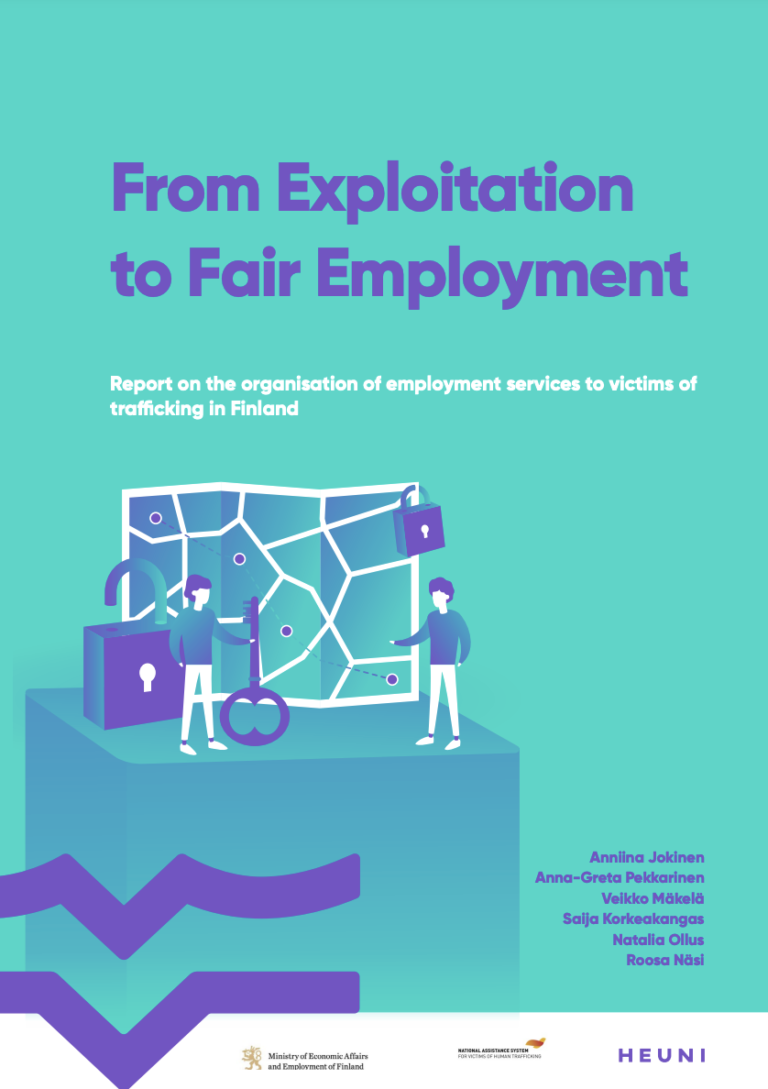Hundreds of migrant victims of human trafficking or labour exploitation are identified in Finland each year. Human trafficking is a serious crime that violates human rights and personal liberty and integrity. The consequences of exploitation and its effects on an individual’s capacity and work ability vary. Many victims of trafficking wish to stay in Finland and find a path to fair employment in which the statutory terms of employment are fulfilled, and they receive an appropriate salary to provide for themselves and their family. This path is different for each person and because of that, it is important to consider their individual circumstances. Based on international agreements Finland must offer trafficking victims protection and assistance and therefore, in the long run, also improve their work ability and integration into the Finnish society.
Little is known, however, about issues which relate to employment of victims of trafficking and exploitation. The topic has not been studied in Finland and is quite novel also internationally – in most countries less attention has been paid to employment and long-term support needs in comparison to the trafficking victims’ identification process and initial support (e.g. McCarthy 2018, 105, 120; Shigekane 2007, 114–115; Surtees 2013). This report is an English version of the original Finnish study that examined the challenges of the organisation of employment services to migrant victims of trafficking in Finland. The English version is shorter than the Finnish report, and only the empirical part of that study has been translated. The report has been written in cooperation by HEUNI and the National Assistance System for Victims of Trafficking as part of the IKUT project.
The National Assistance System for Victims of Human Trafficking is an authority tasked with helping trafficking victims in Finland. It offers services for potential victims, their underage children as well as people assisting with the investigation. The Assistance System is also the national centre of knowledge for assisting trafficking victims in Finland, providing consultation and training. The IKUT project run by the Assistance System focuses on building the employability skills and working life competence of victims of human trafficking in Finland through training modules and direct support. Furthermore, the project aims to increase the awareness of the private sector on human trafficking and to facilitate the private sector’s anti-trafficking work. The project is funded by the European Social Fund.

